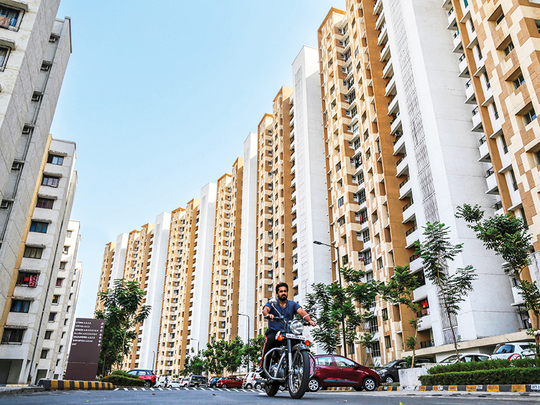
Indians have been an integral part of the UAE’s history. If you look at different business verticals, success stories, or real estate investments, Indians are generally at the top of the chart.
The relation between India and the UAE dates back to even before the two countries were formed. The UAE used to fall under Mumbai tribunal of the British rule.
In more recent times, there has been news about the taxman in India going after people with undisclosed overseas investments in properties. Does that impact Dubai real estate industry? Sometimes perceptions can be wilder than reality... and only a deep dive into the details can bring you closer to reality.
We can get the exact number of Indians who own properties in Dubai. But, the key question is how many are residents in India? Let me share my two cents on this topic.
Backed with my practical experience as a developer based in Dubai for over a decade-and-a-half, I have always highlighted that while India is a key market, it remains untapped in terms of attracting investments in Dubai real estate.
Twin dynamics at work
In the 20 years journey of Dubai’s freehold real estate, there are two distinct eras. The first which lasted until 2008 was young and wild. People, especially from India, were not convinced about the longevity of the real estate industry in Dubai. Hence a general description would conclusively define it as a “bubble”.
Their conviction in the bubble bursting was overwhelming. And to their happiness, it happened in 2008. So, there was slim chance that someone based in India would consider investing in properties in Dubai.
Inflating a bubble, but at home
The second innings of Dubai’s real estate has seen a thoroughbred performance, and full credit must be given to the RERA in how they have shaped the industry with a long-term vision. During the period, Dubai Government kept spending lavishly on infrastructure development, and today it is second to none.
Between 2009-14 while Dubai’s real estate industry was in a recovery mode, India’s economy was experiencing the biggest boom ever across all industries. During this phase, the capital gains that could be achieved in real estate investment in India was unprecedented.
So leave aside Indians based in India, even NRIs chose to invest in Indian real estate. Not knowing that the same “bubble” that people once used as a synonym for Dubai’s real estate investment was being created in India - but in a larger magnitude. And like any bubble would, it burst.
The size of Indian real estate industry is expected to touch $1 trillion by 2030; it is many times more complex and plagued by decades of malpractice. While the government has been putting measures for recovery, I feel the bubble was so big that it will take three times more effort and time for it to recover.
Slippery
Since 2015 the Indian economy started slipping from all sides. A declining GDP and FDI, an increase in unemployment and bad debts have thinned the consumer’s spending capacity. Leave aside investing in real estate in Dubai or abroad, people in India quite prudently look to be in damage control and survival mode.
The reality is that when we consistently see Indians are among the Top 3 investors in Dubai realty, such investments come from NRIs, and largely from Indians based in GCC who are anyway exempted from the Indian tax regime.
There are many valid reasons for this, and the most important is the belief of NRIs in the inclusive and progressive vision of the government of Dubai. The second most important reason I feel is the ease of managing such investments.
Due to many historical incidents, NRIs also find a threat of illegal occupancy of their property if they buy in India, and then landing in a non-ending court battle. There are cases where the verdict has taken so long that by the time the case was closed, the person who invested and who was the actual owner might not even be alive.
There could be investments made by Indians overseas in properties, but I feel that a very negligible amount would have landed in Dubai. On the contrary, the way transactions in Indian real estate happens is with a wide gap between the actual price and the registered price. People are trying to avoid the huge registration fee.
This should be unearthed; after all, we are talking about a real estate industry that is expected to touch $1 trillion in a decade.
- Atif Rahman is Director and Partner at Danube Properties.








